
12 Common English Idioms Used by Native Speakers
Idioms are an essential part of any language, and English is not an exception. In this post, written by our friends over at Lingoda, we learn 12 common English idioms frequently used by native speakers.

Table of contents
Have you ever had a conversation with a native English speaker, and found yourself confused by a phrase they have used, which does not seem to make any sense within the context of the conversation? Don’t panic, there is a pretty good chance that the phrase they used is what is known as an idiom.
An idiom is an example of formulaic language and can be defined as an expression that, through repeated usage, has gained a meaning that may not be immediately obvious. In many cases, idioms have a figurative meaning, although some are literal. They appear in most languages and you probably use them yourself, without realising.
In this post, we take a closer look at 12 of the most popular idioms used by English speakers, along with examples of how they are used in conversation and what they actually mean.
Common Idioms
Kill two birds with one stone
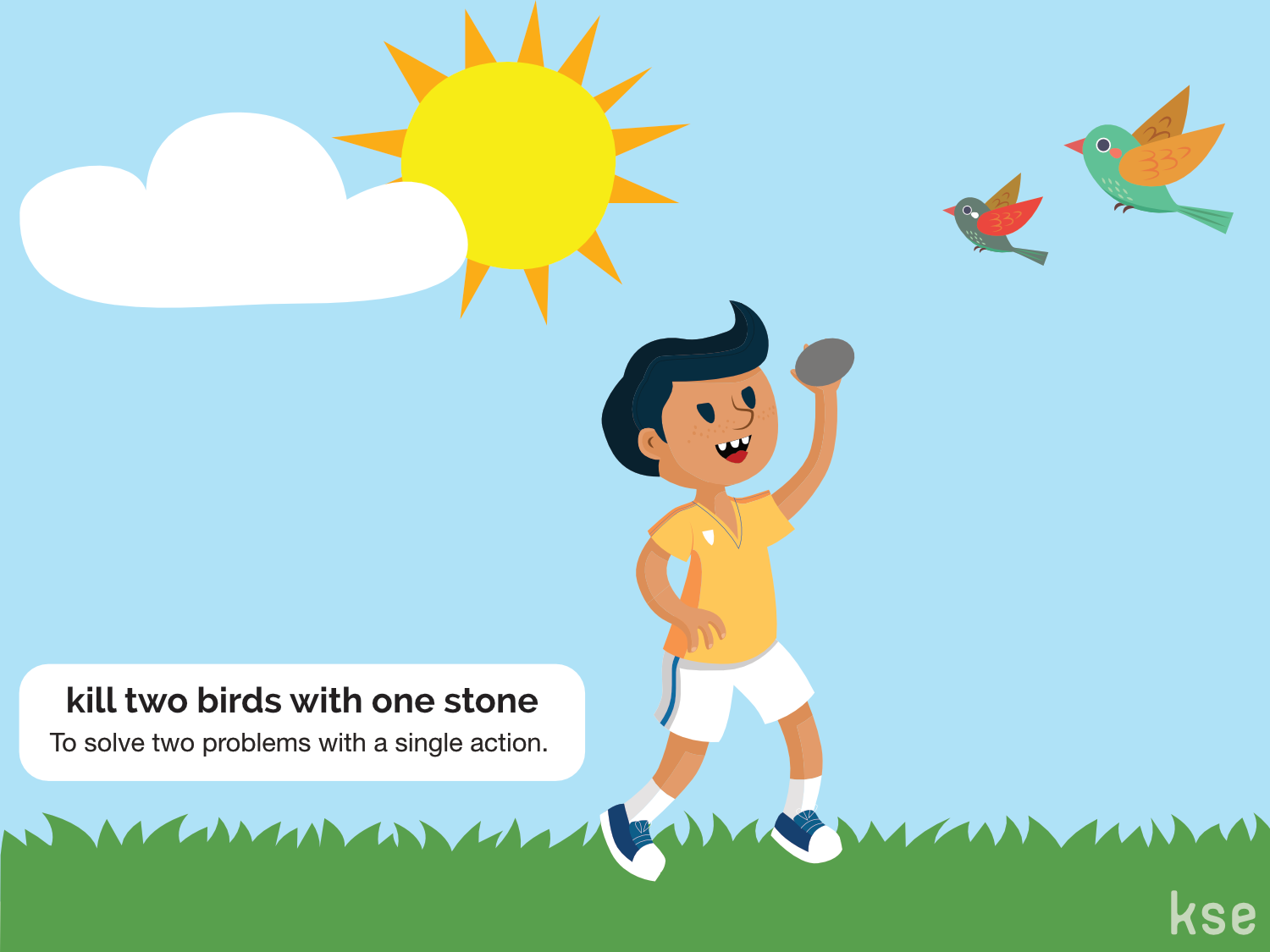
Put simply, if you ‘kill two birds with one stone‘ it means you have solved two problems with a single action. The phrase is always used figuratively, rather than literally, so it does not refer to the actual killing of any birds. It has been in use as an idiom since at least the 17th century, and is believed to have derived from a similar English expression that was around at the same time, which was «to stop two gaps with one bush.»
Best thing since sliced bread

If a person or object is described as the ‘best thing since sliced bread‘, it means they are extremely good. This is an example of an idiom that means almost exactly what it says. Sliced bread became a major consumer product in the early 20th century and was advertised as a huge step forward for baking. The idiom is often used to hype new products, but can also be used somewhat sarcastically e.g. «you think you’re the best thing since sliced bread.»
Hit the nail on the head

If you are told you have ‘hit the nail on the head‘, it means you have said exactly the right thing. It is most commonly said when somebody astutely identifies the cause of a problem. However, someone might also say you have ‘hit the nail on the head’ if you answer a question correctly, or describe something accurately.
Under the weather

If someone is described as being ‘under the weather‘, it means they are not feeling well. This idiom can refer to either sickness or tiredness and it originates from old sailing ships, where logs would be kept of the number of unwell passengers. If the number of sick people on board exceeded the amount of space in the log, they would be listed in the space reserved for making notes about the weather conditions instead.
Funny Idioms
The lights are on, but no one’s home

Usually utilised as a funny but derogatory expression, ‘the lights are on, but no one’s home‘ is a description of somebody who is stupid, void of common sense, or lacking awareness at the present time. It is a metaphor, implying that while someone seems like they are alert and awake from the outside, they are mentally vacant in some way. It could be roughly translated to saying that somebody has a brain, but is not actually using it.
Excuse my French

The purpose of this idiom is to excuse the use of a swear word. It can be said either before the swear word (‘excuse my French, but…’) or after the swear word has been said. It has been used since the 19th century and is intended to be comedic, seeking to excuse foul language by implying that the word in question is actually foreign.
You’ve twisted my arm

To somebody unfamiliar with this phrase, it may seem to suggest physical harm has been caused. In actual fact, if someone has ‘twisted your arm‘, it means they have successfully convinced you to do something that you may have been reluctant to do. It tends to suggest an element of coercion, or peer pressure.
Pigs might fly!
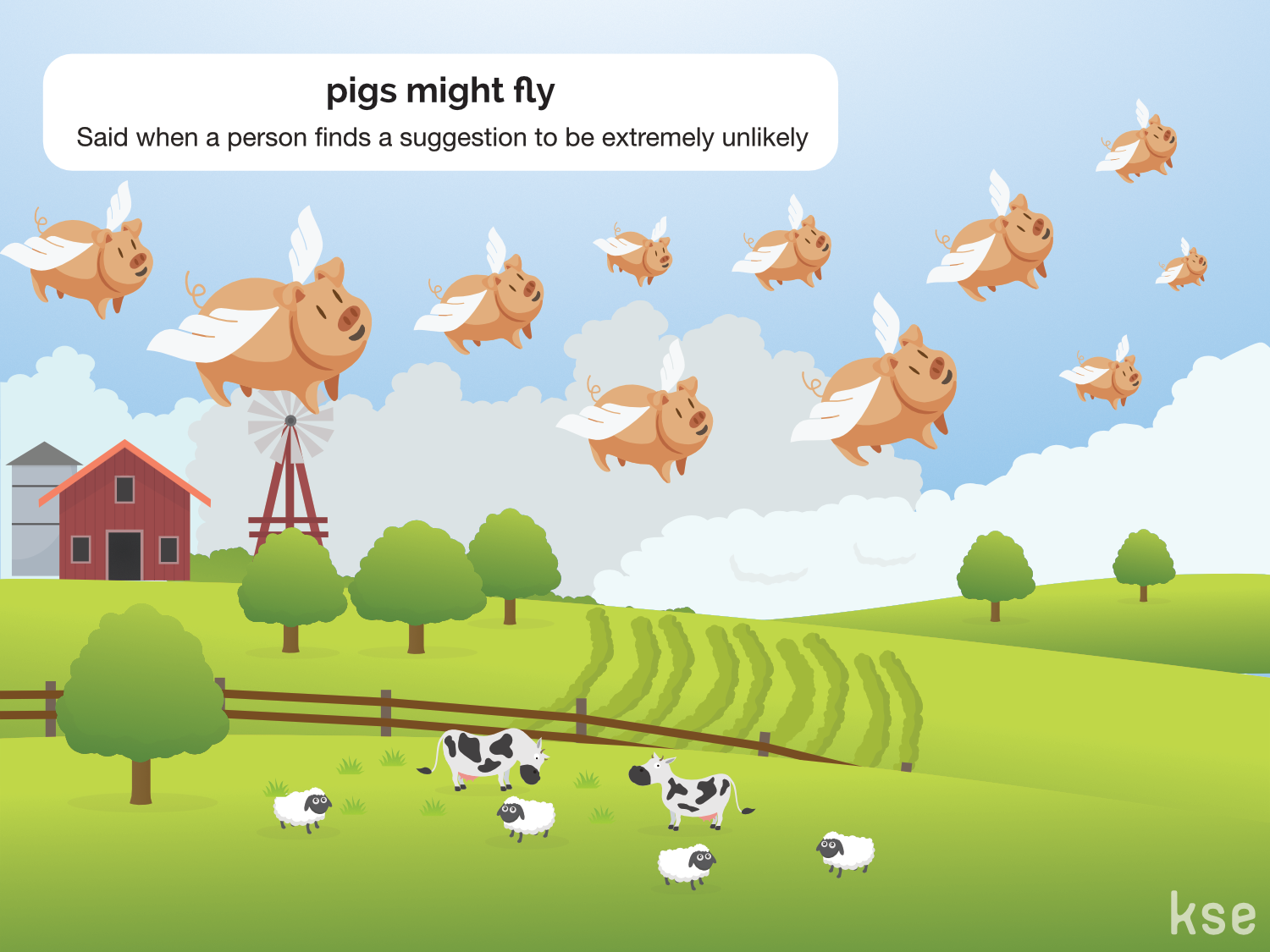
An incredibly sarcastic idiom, ‘and pigs might fly!‘ is usually said when a person finds a suggestion to be extremely unlikely. It uses an exaggerated or hyperbolic comparison to imply that the thing being spoken about is impossible. For instance, one person may suggest that a certain sports team could win the championship this year, and another person may respond with: ‘Yeah, and pigs might fly!’ if they think it is unlikely.
Unusual Idioms
The cat’s got your tongue?

Sometimes said as the slightly longer ‘What’s the matter? The cat’s got your tongue?’, this idiom is used to prompt a person to speak, especially if they are being unusually quiet. It is a somewhat strange expression and the first known appearance of it in writing comes from the 19th century, at which point it was said to be a «children’s phrase». Various origin stories have been suggested over the years, but all are speculative.
A different kettle of fish
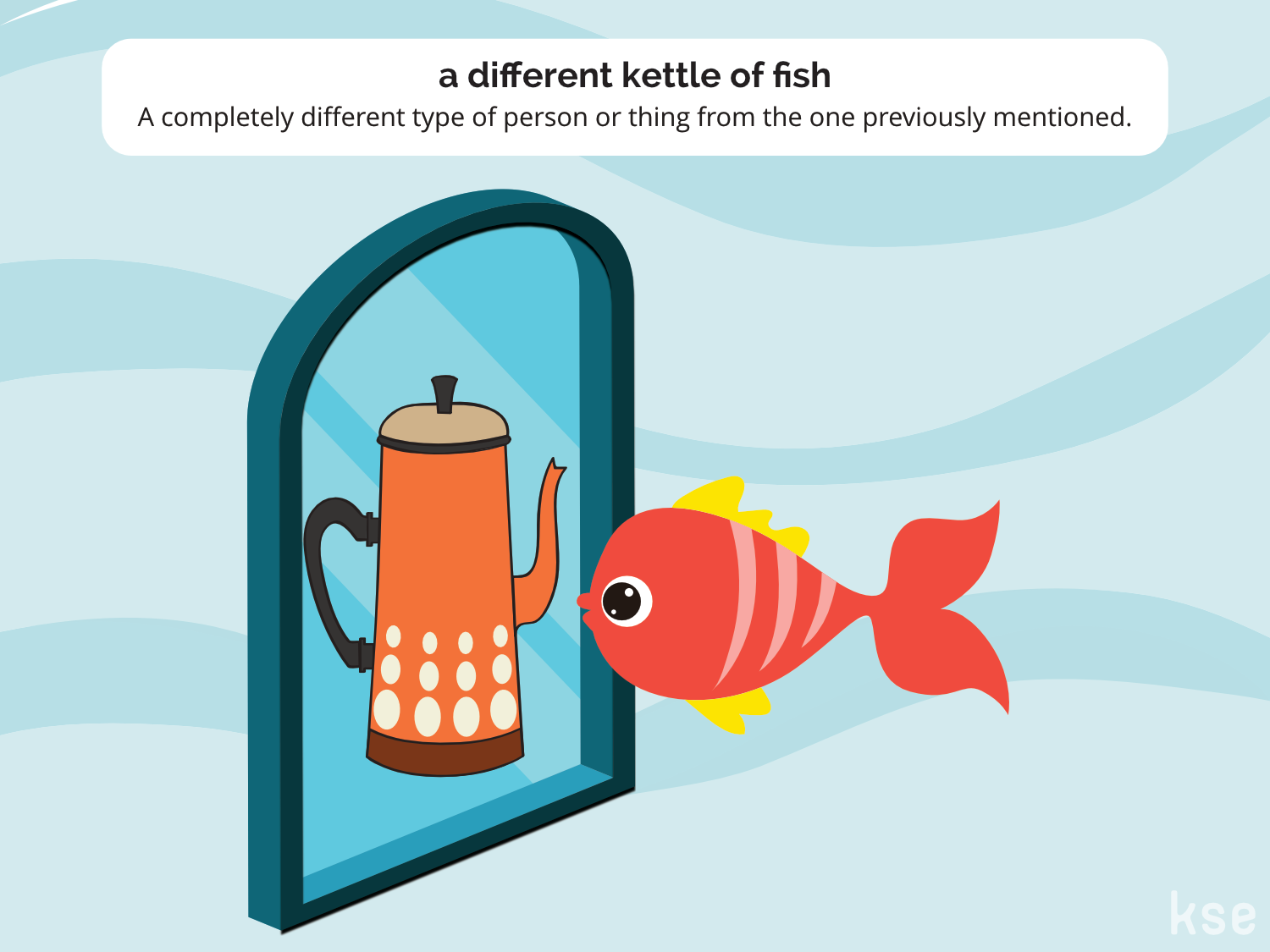
Similar to saying ‘that’s a different story altogether‘, the idiom ‘a different kettle of fish‘ is used to refer to an alternative idea or situation. It is primarily used in Britain, but despite the country’s fondness for tea, the ‘kettle’ in question here is not a tea-kettle. Instead, it refers to a long saucepan, used to cook salmon. It is not known how this became an idiom, but an American equivalent would be ‘a whole new ball game’.
And Bob’s your uncle
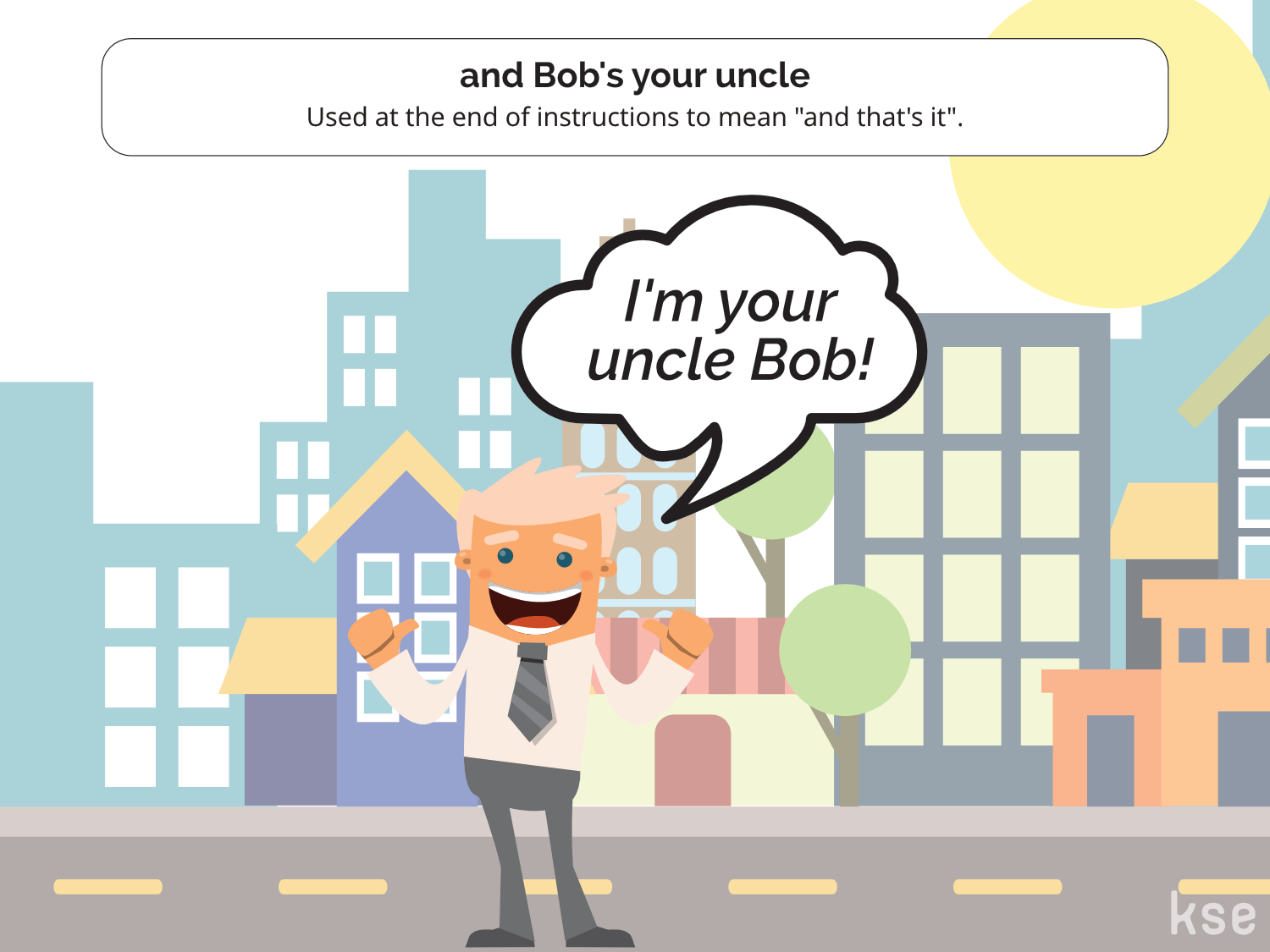
Another unusual expression, which is generally used at the end of a series of instructions, ‘and Bob’s your uncle‘ is comparable to the French phrase ‘et voilà!‘. Again, the origins of the idiom are unknown, but can be thought of as meaning ‘and there you have it’, or ‘it is as simple as that’. Very rarely, and almost always for comedic effect, you may hear someone say ‘Robert is your mother’s brother’ instead.
A storm in a teacup
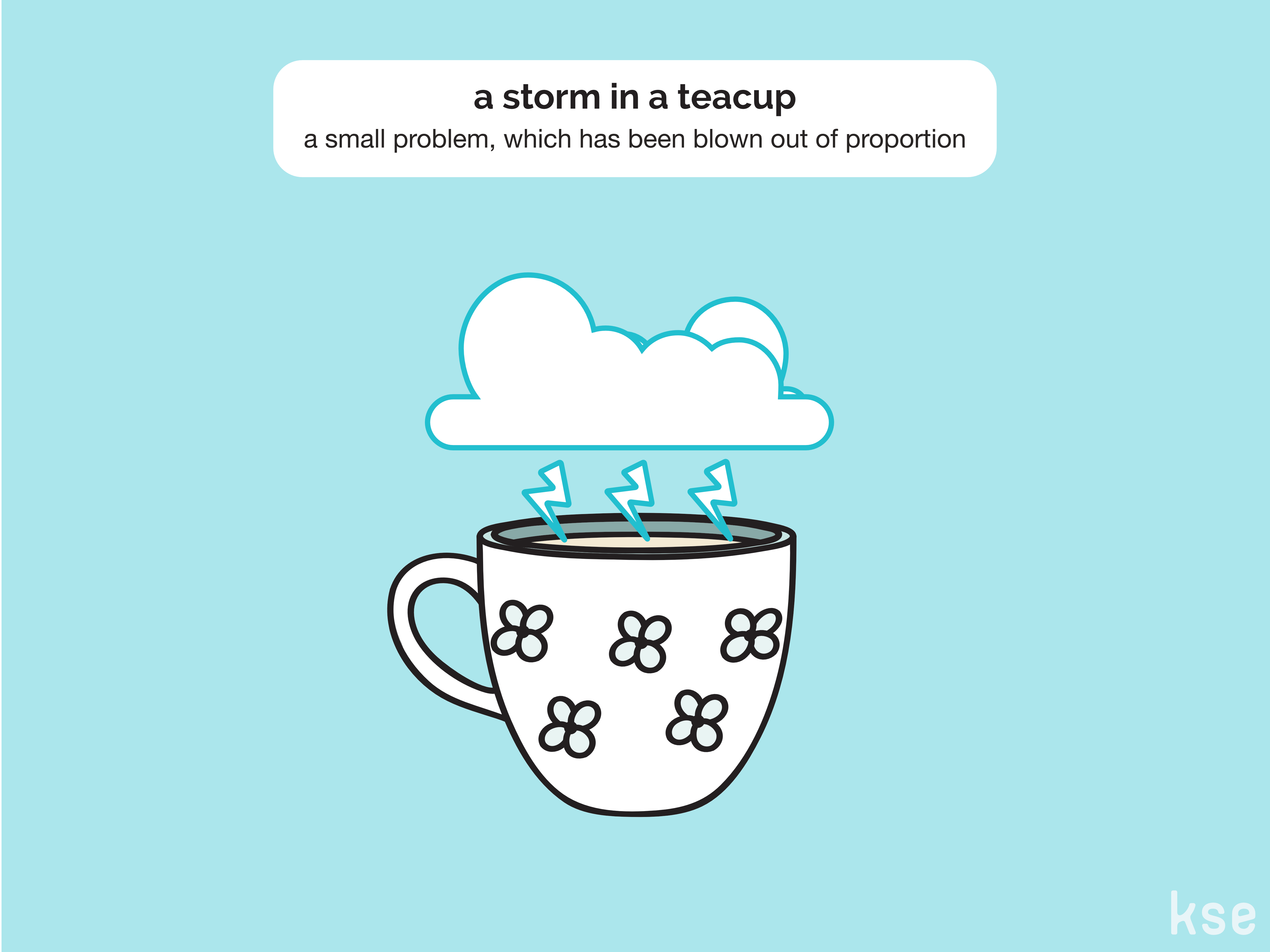
‘A storm in a teacup‘ is another British idiom, describing a small problem which has been blown out of proportion. Its origins date to the Latin writings of Cicero more than 2,000 years ago, in which he described something as ‘stirring up billows in a ladle’. Many countries have equivalent idioms – in French, there is an idiom which translates to ‘storm in a glass of water’, while American English features the phrase ‘a tempest in a teapot’.

This post was written by the team behind Lingoda, an online language school which offers English, German, French and Spanish lessons. Classes are held live by native-speaking teachers, and focus on every aspect on language learning. Lingoda offers both group and private classes and delivers official certificates according to CEFR standards. Follow their blog for more language learning tips or book a trial class with them.